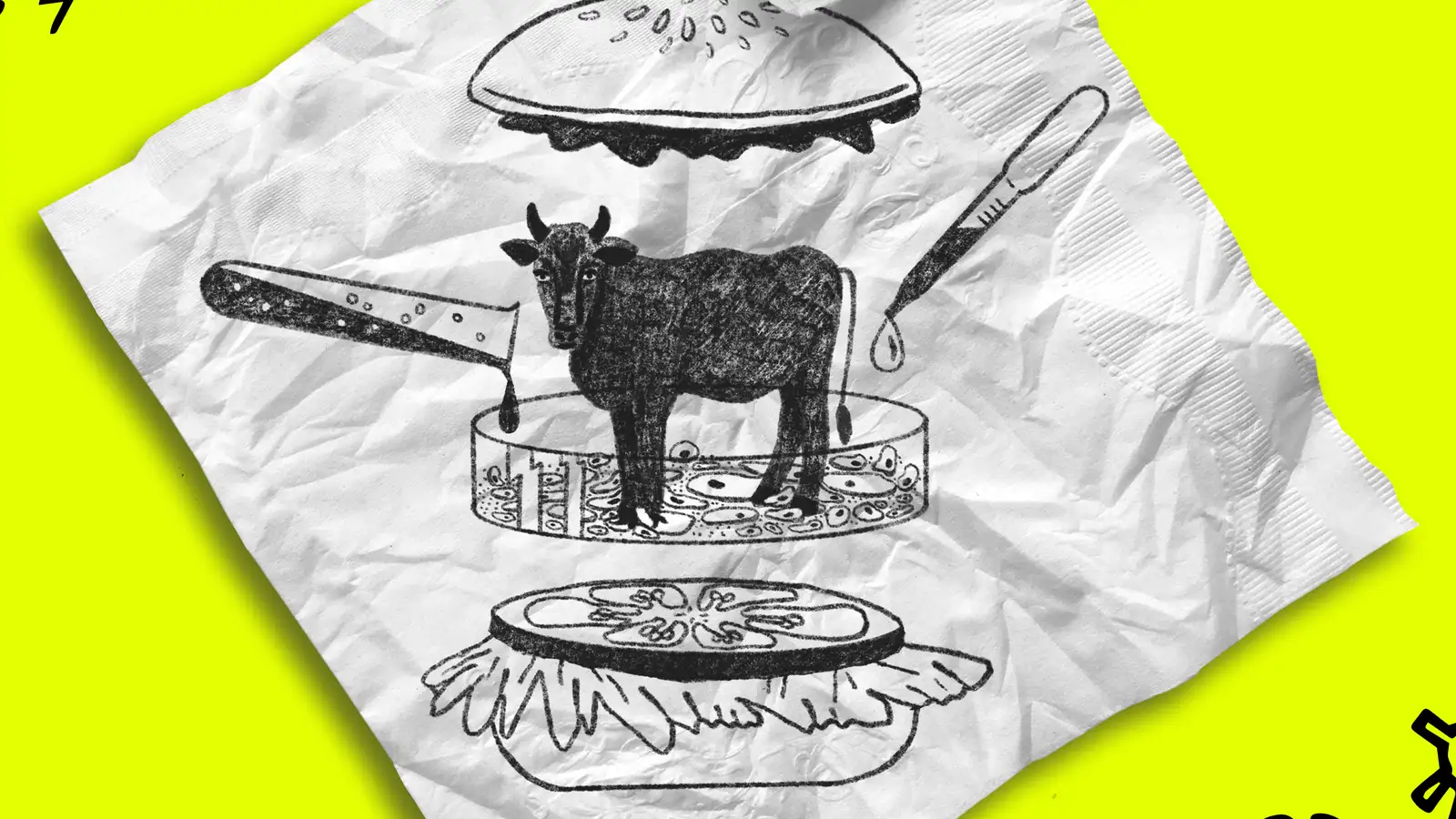For more on lab-grown meat, check out the eight episode of our Should This Exist? podcast, which debates how emerging technologies will impact humanity.
Some words for the bits of animal that we eat are appetizing: chops, meat, fillet, ribs. Others—flesh, carcass, muscle—cut a little too close to the bone.
That logic, at least, seems to be at the heart of meat producers’ push to have so-called “fake meat,” cultured from cells in a lab, rechristened “lab-cultured tissue.” The US Cattlemen’s Association (USCA) is a trade association and lobbying group that advocates for the interests of US beef farmers. They believe that allowing cultured meat to be called “meat” would “confuse consumers,” giving them the impression they were eating bits of Buttercup the cow, instead of anonymous muscle matter produced in a petri dish.
“Fake meat” is produced in vitro from the cells of animals, which multiply to produce a mass of pinkish meat-adjacent tissue. In theory, no animal needs ever be harmed. These new technologies, New Harvest CEO Isha Datar said on a recent episode of the podcast Should This Exist?, may eventually lead to the reinvention of the entire meat industry. Right now, the industry is still in its infancy—Datar and her colleagues are still in the process of “creating the universe in which cell-cultured meat can exist,” she said. But if their gamble pays off, lab-grown meat could become a staple of our diets, replacing animals raised on factory farms.
In light of this looming shift, it’s hardly surprising that meat producers are doing what they can to mitigate the impact to their jobs and livelihood—including aggressively defending the very definition of meat.
In a February 2018 letter to the Department of Agriculture, representatives from the USCA laid out their position: “Meat,” they argue, should refer only to something that was once a living, breathing animal; products which are “not derived from animals born, raised, and harvested in the traditional manner should not be permitted to be marketed as beef.” A National Cattlemen’s Beef Association follow-up from late December argued that the FDA “should refrain from finalizing the regulatory framework” until they could test sample products at some unspecified later date. “Only through objective analysis can the federal government, scientific community, and other stakeholders truly understand the products in question.”
But perhaps the issue isn’t what fake meat is, scientifically speaking, but what it represents. In October 2018, members of the South Dakota Farmers’ Union testified in a USDA hearing. They argued that “meat” wasn’t just bits of an animal—it was a brand. “I believe it is wrong to label lab-cultured tissue as meat, because I understand the investment of time and labor that goes into raising cattle. My family and I raise beef cattle from birth through the feedlot. We care for them each and every day until we sell them to be harvested,” cattle producer Eric Sumption said. “The term meat is our brand, applied to a product that livestock producers, like me, my father, grandfather and great-grandfather worked for generations to perfect.”
If farmers aren’t keen on competing products called “meat,” they are even less enthusiastic about their being called “clean meat.” As Sarah Zhang reports for The Atlantic, “‘clean meat’, not surprisingly, riles up beef producers. Danielle Beck, a lobbyist for the National Cattlemen’s Beef Association (NCBA), told me on the phone last week that the term is inherently offensive to traditional-meat producers, as if real meat is somehow dirty.”
Whether these efforts actually bear fruit remains to be seen. Meat producers might succeed in placing a moratorium on the word “meat,” but there’s no precedent to suggest they’d be able to pick an alternative for the new lab-grown meat industry—or that it would prevent customers from speaking with their wallets. While the FDA has placed labeling restrictions on certain vegan products, including the eggless Just Mayo, it seems to have had little impact on customers relieved to have a planet-happy, cruelty-free alternative.
Correction: An earlier version of this story attributed comments made by the US Cattlemen’s Association to the National Cattlemen’s Beef Association.
For more on lab-grown meat, check out the eighth episode of our Should This Exist? podcast, which debates how emerging technologies will impact humanity.
